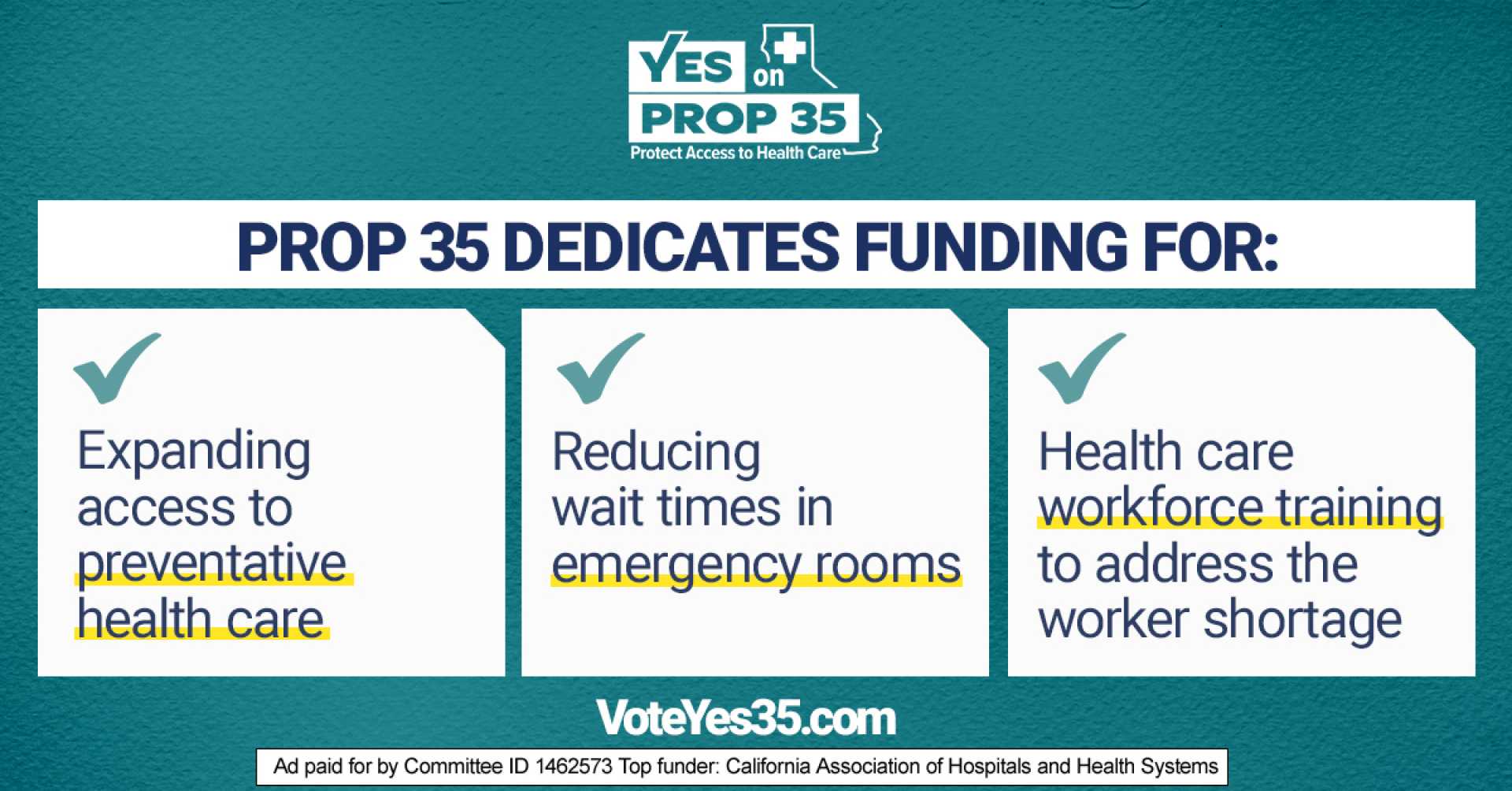Politics
California Proposition 35: A Closer Look at Medi-Cal Funding and Its Implications

California voters are set to decide on Proposition 35, a ballot measure that aims to secure funding for Medi-Cal, the state’s public insurance program for economically disadvantaged families and residents with disabilities. The proposition seeks to utilize an existing tax on health insurance plans to increase payments to doctors and other providers who treat Medi-Cal patients.
The Managed Care Organization Tax (MCO Tax), which is currently in place, generates revenue for Medi-Cal by taxing health insurers. Proposition 35 would ensure that this tax revenue is specifically allocated to offset Medi-Cal costs rather than being diverted into the state’s general fund. This move is intended to make the Medi-Cal program more stable and encourage more providers to accept Medi-Cal patients, as California’s Medi-Cal reimbursement rates are among the lowest in the country.
Supporters of Prop 35, including the California Hospital Association, Global Medical Response, and the California Medical Association, argue that the measure will help address the long-standing issue of low reimbursement rates for Medi-Cal services. They have collectively raised $50 million for the campaign, highlighting the broad support from healthcare providers and insurers.
However, opponents warn that Prop 35 could have unintended consequences. They argue that the proposition’s restrictions on modifying the tax could lead to a loss of federal funding. Currently, the tax burden is disproportionately placed on Medi-Cal insurers, which could violate federal rules requiring a more balanced distribution between commercial and Medi-Cal insurers. If federal regulators enforce these rules, California might have to reduce taxes on Medi-Cal plans, resulting in a significant loss of revenue.
Gov. Gavin Newsom has expressed concerns about the measure, noting that it could lock in tax revenue for a single purpose and create budget deficits. The state budget he signed in July shifted most of the tax revenue into the general fund to address various Medi-Cal program needs. If Prop 35 passes, the state could face a $2.6 billion deficit in the current budget, increasing to $11.9 billion over the next three budget cycles.
Despite these concerns, proponents of Prop 35 maintain that the measure will ensure consistent funding for essential healthcare services and encourage more providers to participate in the Medi-Cal program. The outcome of this proposition will be closely watched as it has significant implications for the healthcare landscape in California.












